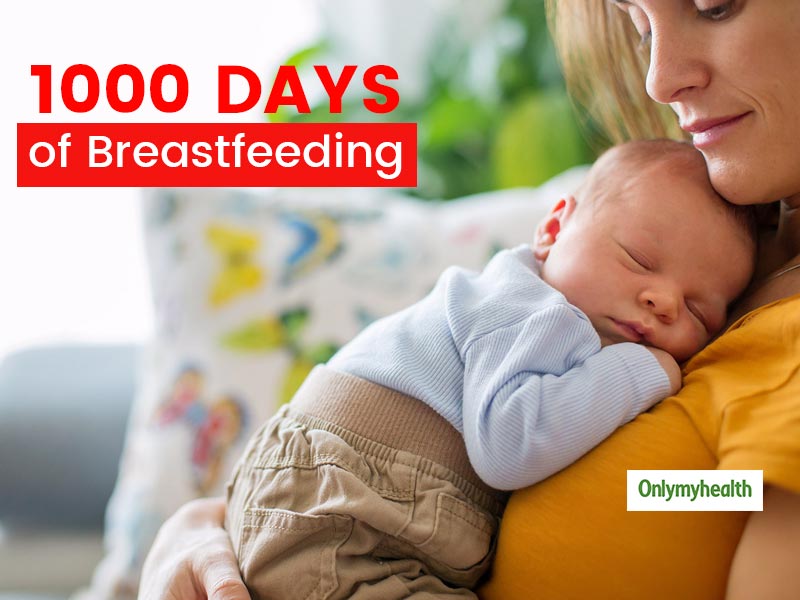
The first thousand days for any child is from the time of conception of the mother to the second birthday of the child. This time is the pregnancy phase as well as 2 years after the baby of the birth. This is the time when the infant’s brain and body see rapid development. Hence, this is the most crucial time to properly build on the mental and physical capacity of the child not to face any dreaded long-term consequences. This is that ‘golden period’ when the mother can ensure that the infant’s growth is healthy but just making them breastfeed.
Table of Content:-

Also Read: Why Should A New Mother Practice The Golden Hour Of Breastfeeding?
Why 1000 Days Of Breastfeeding?
There are many aspects to breastfeeding, and the most important of it is nutrition. What summarises here is that the nutrition of the mother during pregnancy and the infant’s in the first two years can be a significant determinant of the child’s health. Hence, the need of the hour for every nation would be to invest in women’s health and nutrition, as well as to promote breastfeeding, provide protection and support, and provide children with the right supplements. It is also necessary to provide information about the methods.
What Is The Optimal Nutrition Required?
The optimal nutrition for a child in the first six months of his life comes from his own mother’s milk and not from anything else. There is a straightforward logic behind this, that mother’s milk contains all the nutrients necessary for a child up to 6 months. A newborn has to develop its immunity, and the mother’s milk provides immunity to the baby until it achieves an adequate level of Calcium. Breastfeeding not only provides proper nutrition for the fast-growing brain and body, but it acts as a building block for their life ahead.
Watch: How to boost breastmilk:
The Breastfeeding Mechanism
When the mother has an infection, she secretes an antibody in her milk against the infection that protects her from that infection. Not only this, if there is an infection in her baby, but the baby’s saliva also communicates with the mother’s breasts, and the mother’s breasts start producing protective substances (antibodies) to help fight infection.
After the child is six months old, the child’s dietary requirement increases and the child’s diet includes supplements, as well as continued breastfeeding. The World Health Organization (WHO) suggests that the child should be breastfed until at least two years of age.

Also Read: Breastfeeding Helps In Improving Mental Well-Being Post Delivery, Says Gynaecologist Dr. Nupur Gupta
But sadly, data from across the country can see a decline in our breastfeeding rates, and there are two main reasons behind this, myth and fear that are related to coronavirus infection and lack of preparedness. The mother-to-child’s immediate skin-to-skin contact and breastfeeding are that instant connecting points for the infant and the new mother for life. If we summarise, breastfed babies and mothers stay healthy, and their immune system is better. Breastfeeding is recommended, even if the mother is COVID-19 positive. The need of the hour is to gain information, strengthen our immunity right from the early days, and formulate an action plan for a healthy society.
With inputs from Dr Shachi Baweja, Lactation Consultant, Paediatric Department, BLK Super Specialty Hospital
Read more articles on New Born Care
How we keep this article up to date:
We work with experts and keep a close eye on the latest in health and wellness. Whenever there is a new research or helpful information, we update our articles with accurate and useful advice.
Current Version